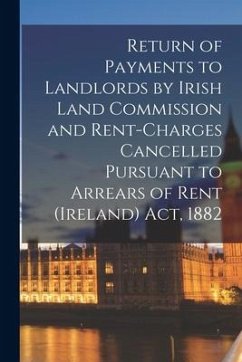
Ropley's Legacy
The ridge enclosures , 1709 to 1850: Chawton, Farringdon, Medstead, Newton Valence and Ropley and the birth of Four Marks
Versandkostenfrei!
Versandfertig in 1-2 Wochen
25,99 €
inkl. MwSt.

PAYBACK Punkte
13 °P sammeln!
The very first private parliamentary enclosure in England was in 1709 in Ropley in Hampshire. Driven by the bishop of Winchester, it was a highly contested land grab seeking to make money to repair family debts by taking control of the common fields. Over 150 years, the government sanctioned theft spread to all the neighbouring ridge villages. Driven by greed and by debts from the 'South Sea Bubble', the county's richest and most powerful men used wage and rent control, repressive game laws and rigged courts to get their way. The response was unexpected and threatened the core of society: veni...
The very first private parliamentary enclosure in England was in 1709 in Ropley in Hampshire. Driven by the bishop of Winchester, it was a highly contested land grab seeking to make money to repair family debts by taking control of the common fields. Over 150 years, the government sanctioned theft spread to all the neighbouring ridge villages. Driven by greed and by debts from the 'South Sea Bubble', the county's richest and most powerful men used wage and rent control, repressive game laws and rigged courts to get their way. The response was unexpected and threatened the core of society: venison raids by armed, black-faced men against church, gentry and the crown, Hampshire smugglers based in Ropley to the fore, food riots and local men paid to form regiments to back the invasion of the Stuart pretenders. The county became the epicentre of the infamous 'Swing riots' which engulfed the south of England. The establishment responded with England's most vicious piece of legislation, the Black Act, stationed troops in Farnham and used forced labour, evictions, transportation and hangings. Ropley's Legacy is a history of small battles all won by unscrupulous and determined landowners and lost by voiceless labouring families. Heal scours the archives to bring the people and the times to life, including the use of 'Punch' cartoons. The last two chapters explains how the ridge enclosures led to the formation of the parish of Four Marks and bring the story of open land loss to the current day. The book includes twenty-five appendices of translated and transcribed original documents.












